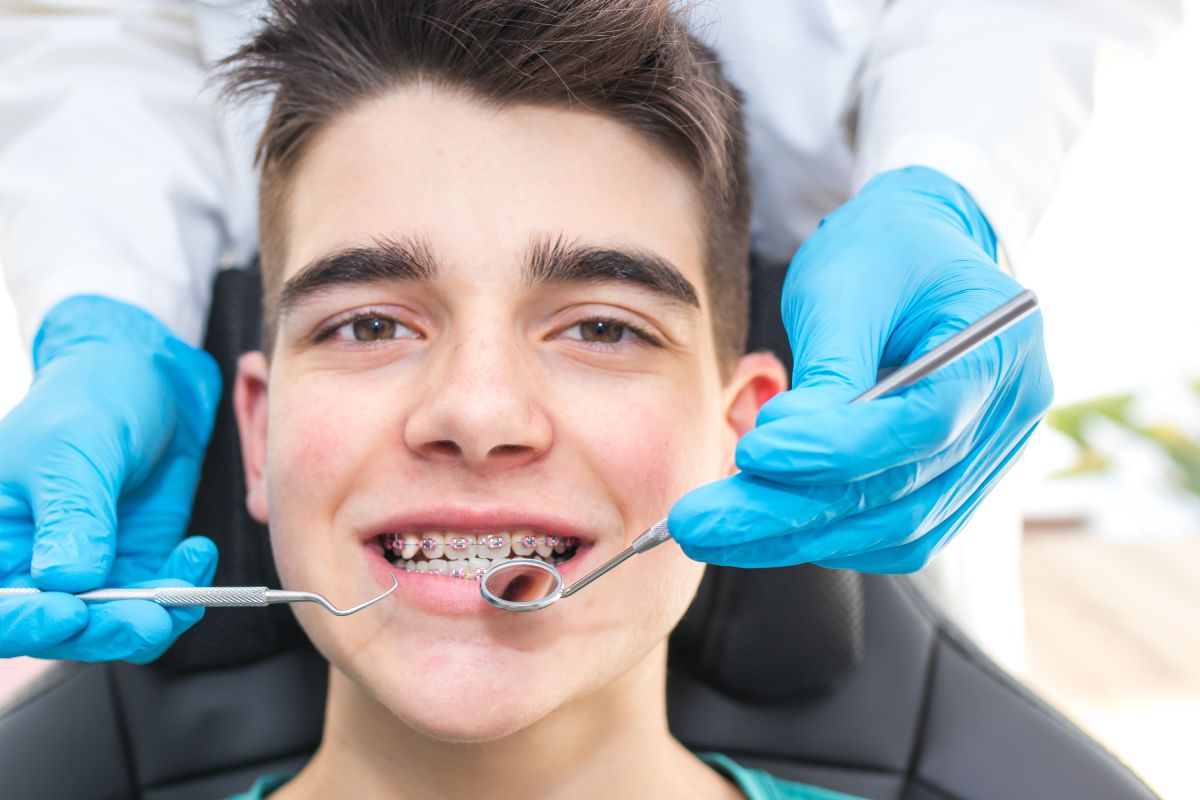Causey Orthodontics - The Facts
Causey Orthodontics - The Facts
Blog Article
The Best Strategy To Use For Causey Orthodontics
Table of ContentsSome Known Details About Causey Orthodontics The Main Principles Of Causey Orthodontics Causey Orthodontics Fundamentals ExplainedThe 8-Minute Rule for Causey OrthodonticsThe Ultimate Guide To Causey OrthodonticsNot known Facts About Causey OrthodonticsNot known Details About Causey Orthodontics
What is the difference in between a dental expert and an orthodontist? To answer a concern that is frequently asked, both dental professionals and orthodontists assist clients acquire much better oral health and wellness, albeit in different means. It assists to keep in mind that dental care is a rather wide science with various medical field of expertises. All dentists, consisting of orthodontists, treat the teeth, gums, jaw and nerves.
You can think of both medical professionals that deal with gum tissue and teeth problems. The primary distinction is that becoming an orthodontist requires a certain specialized in treating the imbalance of the teeth and jaw.
The Ultimate Guide To Causey Orthodontics
An orthodontist is a dental professional that has actually gone through training to specialize in the medical diagnosis, prevention and therapy of abnormalities in the jaw and teeth. They can additionally identify potential troubles in teeth placement that might develop when conditions are left unattended (Causey Orthodontics).
This consists of all the required education and learning to end up being a general dental professional. According to the American Pupil Dental Association (ASDA), it indicates you will need to have either a Medical professional of Medicine in Dental Care (DMD) or a Physician of Oral Surgery (DDS). Simply put, orthodontists require to complete oral college and after that obtain an orthodontics specialty education.
Some orthodontists likewise obtain their masters in craniofacial biology. These programs concentrate on two particular locations or disciplines: Dentofacial Orthopedics: This research study focuses on guiding teeth and jaw growth.
The Definitive Guide to Causey Orthodontics

 These consist of apparatus such as dental braces, retainers and Invisalign. So, what does an orthodontist do, and what do they focus on? The general objective of an orthodontist is to improve a person's bite. Not everybody is birthed with straight teeth, and an orthodontist will make certain that patients get evenly spaced straight teeth.
These consist of apparatus such as dental braces, retainers and Invisalign. So, what does an orthodontist do, and what do they focus on? The general objective of an orthodontist is to improve a person's bite. Not everybody is birthed with straight teeth, and an orthodontist will make certain that patients get evenly spaced straight teeth.
Causey Orthodontics for Dummies
The American Organization of Orthodontists advises your initial check up by age 7. You'll need to see your orthodontist if you have an imbalance in your teeth, likewise recognized as malocclusion. Additionally, if you see uneven bite patterns, a slightly askew jaw, or when your teeth are overcrowded, you will likely need orthodontic treatment.
In addition, we provide adjustable treatment timetables, versatile repayment alternatives and an enjoyable, satisfying experience.
An orthodontist is a dental expert trained to identify, stop, and treat teeth and jaw irregularities. They fix existing conditions and are educated to determine troubles that might establish in the future. Orthodontists work with people of every ages, from children to grownups. People commonly associate a perfect smile with great health and wellness.
Examine This Report about Causey Orthodontics
Malocclusion, or misaligned teeth, can bring about dental concerns, including dental caries, gum disease, and hard or agonizing eating. Not everybody is born with straight teeth. If you have a bad bite or big areas in between your teeth, you may desire to seek advice from a dentist specializing in orthodontic treatment.
(Image Credit Report: DigitalVision/Getty Images) Orthodontists make use of taken care of and detachable dental devices, like braces, retainers, and bands, to alter the placement of teeth in your mouth. Orthodontic treatment is for dental problems, consisting of: Misaligned teethBite problems, like an overbite or an underbiteCrowded teeth or teeth that are also far apartJaw misalignmentThe goal of orthodontic therapy is to boost your bite.
The Only Guide to Causey Orthodontics

, however not all dental professionals are orthodontists. They focus on two locations: Just how to appropriately and safely relocate teeth Just how to appropriately assist development in the teeth, jaw, and faceOnce an orthodontist has actually finished training, they have the choice to become board licensed.
Imbalance, or malocclusion, is the most usual reason people see an orthodontist. It is genetic and is the outcome of dimension distinctions between the top and reduced jaw or in between the jaw and teeth. affordable orthodontist near me. Malocclusion results in tooth overcrowding, an askew jaw, or irregular bite patterns. Malocclusion is generally treated with: Your orthodontist connects metal, ceramic, or plastic square bonds to your teeth.
Getting The Causey Orthodontics To Work
If you have only small malocclusion, you may have the ability to utilize clear dental braces, called aligners, instead of standard braces. Some people need a headgear to help move teeth into line with pressure from outside the mouth. After braces or aligners, you'll require to put on a retainer. A retainer is a custom gadget that maintains your teeth in position.
Report this page